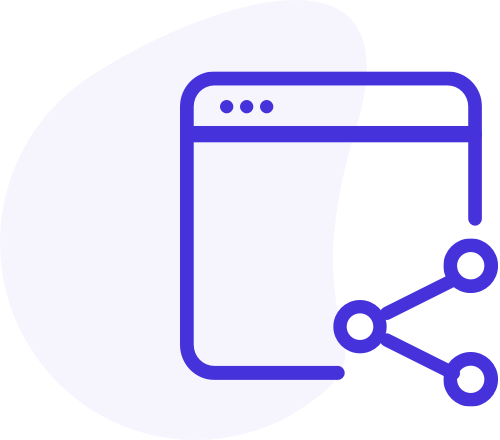Cost-per-click (CPC) campaigns are a cornerstone of digital marketing, allowing businesses to drive targeted traffic and achieve measurable results. Whether you’re a small business owner looking to increase website visits or a marketer striving to generate leads, understanding how to create and manage an effective CPC campaign can make a significant impact on your success.
For businesses that need expert guidance, commercial CPC campaign management services can be invaluable, offering tailored strategies and advanced analytics to ensure campaigns meet performance goals.
What Are CPC Campaigns?
CPC, or cost-per-click, is a digital advertising model where advertisers pay a fee each time their ad is clicked. CPC campaigns are often associated with platforms like Google Ads, Facebook Ads, and LinkedIn Ads, where businesses bid for ad placement in highly visible areas.
The key advantage of CPC campaigns is their ability to connect with a targeted audience. Instead of paying for ad impressions (how many times an ad is shown), you only pay when a user takes action by clicking on your ad, making it a cost-effective strategy.
Why CPC Campaigns Are Effective
- Targeted Reach: CPC campaigns allow you to tailor your audience based on demographics, location, interests, and search behavior.
- Budget Control: You can set daily or total budgets to ensure you don’t overspend.
- Measurable Results: Platforms provide robust analytics to track performance, including click-through rates (CTR), conversions, and return on investment (ROI).
- Scalability: CPC campaigns can be scaled up or down based on your business needs.
Steps to Create a Successful CPC Campaign
1. Define Your Goals
Clearly identify what you want to achieve with your campaign:
- Increase website traffic
- Generate leads
- Drive sales
- Promote a specific product or service
Aligning your campaign with these goals ensures a focused approach.
2. Understand Your Audience
Research your target audience to understand their needs, preferences, and online behavior. Create detailed buyer personas to guide your campaign strategy.
3. Choose the Right Platform
Select platforms where your audience is most active. For example:
- Use Google Ads for search intent and high traffic.
- Leverage Facebook Ads for audience engagement and brand awareness.
- Opt for LinkedIn Ads if targeting professionals or B2B audiences.
4. Conduct Keyword Research
For search-based CPC campaigns, keyword research is essential. Use tools like Google Keyword Planner, SEMrush, or Ahrefs to find high-performing keywords relevant to your business. Focus on long-tail keywords to attract users with specific intent.
5. Create Compelling Ad Copy
Your ad copy should grab attention and encourage clicks. Key elements include:
- A clear and engaging headline
- A concise description highlighting benefits or solutions
- A strong call-to-action (e.g., “Learn More,” “Shop Now”)
6. Optimize Landing Pages
Ensure that users are directed to a landing page that aligns with the ad content. A well-optimized landing page increases the likelihood of conversions by providing relevant information and a clear path to action.
7. Set a Realistic Budget
Start with a manageable budget and gradually increase as you analyze campaign performance. Balance your bid strategy to achieve maximum visibility without overspending.
8. Monitor and Adjust
Track key performance metrics regularly, including:
- CTR: Measures how compelling your ad is.
- Conversion Rate: Assesses how many clicks lead to desired actions.
- Cost-Per-Conversion: Evaluates the efficiency of your ad spend.
Make adjustments to underperforming ads or refine audience targeting to improve results.
The Role of Commercial CPC Campaign Management
For businesses that lack the time or expertise to manage campaigns effectively, commercial CPC campaign management offers a tailored approach. Professional campaign managers bring expertise in platform optimization, data analysis, and strategy development, ensuring that every dollar spent delivers maximum ROI. These services are especially beneficial for scaling campaigns or managing complex multi-platform strategies.
Advanced Tips for CPC Campaigns
1. Use A/B Testing
Experiment with different ad variations to determine which performs best. Test elements like headlines, images, and calls-to-action to optimize for engagement.
2. Leverage Remarketing
Remarketing campaigns target users who have interacted with your website or ads but didn’t convert. This strategy keeps your brand top-of-mind and encourages them to return.
3. Optimize for Mobile
With mobile users accounting for a significant portion of web traffic, ensure your ads and landing pages are mobile-friendly.
4. Monitor Competitors
Analyze your competitors’ CPC campaigns to identify gaps and opportunities in your strategy. Tools like SpyFu or Adbeat can provide insights.
5. Focus on Quality Score
Platforms like Google Ads use Quality Score to determine ad placement and cost. Improve your Quality Score by creating relevant ads, targeting the right keywords, and delivering a seamless user experience.
Conclusion
CPC campaigns are a powerful tool for driving targeted traffic, increasing visibility, and achieving business goals. By carefully planning, monitoring, and optimizing your campaigns—or partnering with professional commercial CPC campaign management services—you can maximize ROI and build a sustainable digital marketing strategy. Whether you’re new to CPC or looking to refine your approach, a strategic focus will ensure your campaigns deliver measurable success.








